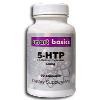
|
Listen very carefully. Do you hear the sounds of ice cracking in the fiery domain where sinners are said to go upon their deaths? Has hell in fact frozen over? Can it be true? Has the American Medical Association broken away from a long history of concern about protecting its members' self-interest and pushed forward an idea that is sound, bold and in the public interest? Hell, yes!
| advertisement |
Limited access to
information
Such a move would help solve the problem of limited
access to accurate drug information in the United States, an issue that stems
from several sources. First off, academic researchers have a hard time getting
research published if it does not show positive results. Negative studies don’t
get past most journal editors. Even if experiments that don’t pan out do get
published in the academic literature, you are not likely to hear about it.
"Common cold still not cured" is a headline you are unlikely to ever read.
|
More troubling than the problems academic researchers have in getting negative results published is the behavior of private companies that sponsor studies.
Pharmaceutical and biotechnology companies sponsor the overwhelming majority of late-stage tests of new drugs and medical devices. Even if private drug companies know there are negative results — or even injuries and deaths — associated with their products, they are under no obligation to make that information known to you or the medical profession. The companies consider this data proprietary. They have lobbied to ensure that only the Food and Drug Administration gets this information and, even then, some drug companies simply prematurely squash studies they don’t think will reflect favorably on their product.
 |
The physicians of the AMA realized that without ready access to all experimental data — good, bad and indifferent — they cannot hope to know what is the best treatment for their patients. And they also understand that without public access to negative data all they can go on is what the marketing departments of the drug companies tout as the best drug to prescribe.
Broken contracts
There is
another reason to make sure that every bit of data produced in testing new drugs
and devices on human beings is made public: It is part of the tacit contract the
researcher and sponsor of the study have with each and every subject.
If you agree to be in an experiment or to participate in a clinical trial to find new ways to treat your cancer, diabetes, Parkinsonism, asthma, depression, migraines or whatever, you are told that the chance of directly benefiting from your participation in a study is at best unknown. Research simply often does not pan out. But, you are also told that if you choose to enter a study then even if it does not work, and most studies do not, doctors will learn from the results and future generations will benefit from that knowledge.
That is a great reason to participate in medical research. But if negative results are not published, if bad outcomes or deaths are swept under the rug, then nothing is learned. And the promise that was made to those who put up with the risk, inconvenience and hassle of research is broken.
Medicine will be much much better off if commercial concerns take a back seat to society's need to know. All data from every experiment — regardless of who pays for it — should be kept in a national registry that is accessible to anyone who wants to see it. Not just because such a registry will make medicine more effective, cheaper and safer, but also because it is what every subject in a medical experiment has the right to expect.
Arthur Caplan is director of the Center for Bioethics at the University of Pennsylvania.
|
|
|
|
|
| Try MSN Internet Software for FREE! |
| © 2004 Microsoft Corporation. All rights reserved. Terms of Use Advertise TRUSTe Approved Privacy Statement GetNetWise Anti-Spam Policy |



